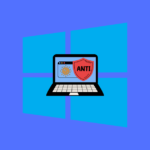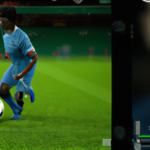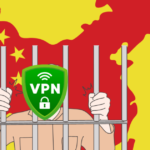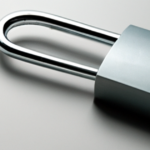Hello, online adventurers! I’m Dr. Edward Baldwin, and I’m here to navigate you through the constantly evolving world of cyber security.
Today, we’re tackling a crucial piece of this puzzle: What is a Personal VPN, and how can it transform your online experience?
In an age where our digital footprints are as real as our physical ones, safeguarding our online journey becomes paramount.
A Personal VPN isn’t just a tech buzzword; it’s a vital tool in your internet arsenal. Think of it as a cloak of invisibility, wrapping your online activities in a layer of privacy and protection.
Whether you’re a casual browser, a globe-trotting traveler, or someone who just values their digital privacy, understanding and using a Personal VPN is key.
So, let’s break down the walls of jargon and dive into what a Personal VPN is, why it’s essential in today’s digital world, and how you can use it to keep your online life private, protected, and personal. Ready to turn your online experience up a notch?
Let’s get started!
Table of Contents
Understanding Personal VPNs

Personal Virtual Private Networks, or VPNs, are services that I use to enhance my internet privacy. They create a secure and encrypted connection over a less secure network, such as the public internet. This encrypted tunnel helps prevent others from eavesdropping on my online activity, which is particularly important when I’m using public Wi-Fi.
Here’s a quick rundown of how they work:
- Encryption: This turns the data I send over the internet into a code that’s not easily deciphered by others, protecting my information.
- Masking IP Addresses: My VPN hides my actual IP address, which can be used to determine my location and browsing habits.
- Secure Connection: VPNs form a private link to the VPN server, and from there, to the broader internet, keeping my connections away from prying eyes.
I choose a personal VPN for reasons such as:
- Privacy: It keeps my browsing private from my internet service provider and potential data collectors.
- Security: When I’m on public networks, my VPN serves as a protective barrier against potential threats.
- Access to Content: With a VPN, I can bypass geographical restrictions, allowing me access to a wider range of content from around the world.
My personal criteria for selecting a VPN include its no-logs policy, server locations, connection speeds, and the strength of its security protocols. I make sure that the VPN service adheres to a strict no-logs policy to ensure that my activities are not recorded or stored.
Core Benefits of Using a Personal VPN

In my experience, a personal VPN serves as a strong tool to enhance online privacy, secure data, bypass content restrictions, and ensure safety on public Wi-Fi networks.
Enhanced Privacy and Anonymity
I’ve found that a personal VPN is crucial for maintaining my privacy online. It hides my IP address and encrypts my internet traffic, making it difficult for anyone to track my online activities or determine my physical location.
Improved Security
My VPN acts as a secure tunnel for my data. It uses robust encryption protocols, like 256-bit encryption, which is the standard for protecting sensitive information. This makes my personal information much safer from cyber threats.
Access to Restricted Content
I use my VPN to access content that’s not available in my country. It lets me bypass geo-restrictions by connecting to servers in different countries, giving me the freedom to stream international media that would otherwise be inaccessible.
Safe Public Wi-Fi Use
Whenever I connect to a public Wi-Fi network, I make sure to turn on my VPN. This ensures that my data remains secure from potential snoopers on the same network, protecting my online activities even when I’m on the go.
How Personal VPNs Work

Here’s a breakdown of the inner mechanics of personal VPNs.
VPN Tunneling Protocols
When I use a VPN, my data travels through secure pathways called tunnels.
Different VPNs use different tunneling protocols, each with its strengths:
- PPTP (Point-to-Point Tunneling Protocol): Fast but less secure, suitable for basic protection.
- L2TP/IPSec (Layer 2 Tunneling Protocol over Internet Protocol Security): Provides stronger security by combining L2TP, which creates the tunnel, with IPSec for encryption.
- OpenVPN: An open-source protocol that offers the best balance of speed and security.
- WireGuard®: The newest protocol that aims for simplicity and speed without compromising security.
Encryption Mechanisms
Encryption is what keeps my data unreadable to unauthorized eyes. Here’s how it works:
- Symmetric Encryption: The same key is used to encrypt and decrypt the data. It’s efficient but requires secure key distribution.
- Asymmetric Encryption: Uses two keys, a public and a private one, which enhances security.
- AES (Advanced Encryption Standard): A common symmetric encryption standard that VPNs use, with key sizes of 128, 192, or 256 bits—the higher the number, the stronger the encryption.
Server Networks
The best personal VPNs offer a wide network of servers around the globe. This network allows me to:
- Connect to geographically diverse servers, often improving connection speeds and reliability.
- Access geo-restricted content by appearing to be in a different location.
- Ensure that there’s always a server nearby when I travel, which can provide a faster connection due to reduced latency.
Choosing the Right Personal VPN

When I’m looking for a personal VPN, it’s not just about staying anonymous online; it’s also about ensuring my data stays secure. Here’s how I make sure I’m picking the best VPN for my needs.
Key Features to Consider
- Privacy: First thing on my checklist is a no-logs policy. I want to make sure the VPN service doesn’t keep a record of my online activities.
- Security: Strong encryption standards like AES-256 are a must for securing my data. Additionally, features like a kill switch and DNS leak protection contribute to overall security.
- Server Locations: More locations mean greater versatility. I look for VPNs with a wide server network that cover countries I’m most interested in connecting to.
- Device Compatibility: Ensuring the VPN supports multiple devices and platforms is important, so I check for compatible apps for all my gadgets.
Reputation and Reliability
I always read up on user reviews and expert opinions to understand the VPN’s reputation. Trustworthy resources give me insights into the VPN’s:
- Customer service efficiency.
- Frequency of technical issues.
- Honesty in advertising versus actual service delivery.
Performance and Speed
Nobody wants a slow connection. Here’s how I measure a VPN’s performance:
- Speed Tests: I check for benchmark tests to see how the VPN performs under various network conditions.
- Server Load: It’s crucial the VPN provides information on server load, which helps me connect to the least crowded server for the best speed.
Setting Up a Personal VPN

Before diving into the setup process, it’s essential for me to understand that a personal VPN takes some initial configuring but ensures my data is secure and my internet access is private.
Installation Process
1. Choose a VPN provider: I start by selecting a reputable VPN service. I check for features like server locations, connection speeds, and privacy policies.
2. Sign up: Once I’ve chosen a provider, I sign up for the service, creating a user account with my credentials.
3. Download and install: I download the VPN client from the provider’s website or app store, then run the installation file and follow the on-screen instructions to install.
Configuration Steps
1. Log in: After installation, I open the VPN client and log in using my account credentials.
2. Server selection:
- Connect to the best server: Usually, the VPN client will suggest the best server for me, optimizing for speed and stability.
- Manual selection: If I need a server in a specific location, I can manually select one from the list provided by my VPN service.
3. Configure settings: I explore the settings menu to adjust options like startup behavior, kill switch activation, or DNS server preferences, ensuring my VPN experience is tailored to my needs.
4. Connect: With everything configured to my preference, I click the ‘connect’ button to start using the secure VPN connection.
Maintaining Your Personal VPN

After setting up my personal VPN, keeping it running smoothly is a priority. I make sure to stay on top of updates and troubleshoot any problems that arise.
Regular Updates
I frequently check for software updates from my VPN provider. Keeping the VPN software up-to-date is crucial for security and performance. This usually involves:
- Checking for updates in the VPN application or on the provider’s website.
- Installing new versions promptly to patch any known vulnerabilities.
- Revisiting settings after updates to ensure everything is configured correctly.
Troubleshooting Common Issues
Encountering issues with my VPN is not uncommon, but I’ve learned to troubleshoot effectively. For common problems:
- When connectivity is an issue, I verify my internet connection first and then restart the VPN service.
- If I experience slow speeds, I try connecting to a different server or checking if my bandwidth is being throttled.
- For login problems, resetting my password and verifying account status helps.
- To resolve device compatibility, ensuring my device’s operating system is supported and up-to-date is key.
Regular maintenance of my personal VPN is simple but essential, and it ensures that my online activities remain secure and private.
Legal and Ethical Considerations

When I talk about personal VPNs, it’s crucial to consider the legal frameworks that govern their use and the ethical implications of using such services. Let’s dive into the details of what I need to keep in mind.
Regional Laws and Regulations
Laws governing VPN usage vary by region and country. For instance:
- In countries like the United States, Canada, and the United Kingdom: VPNs are legal. However, engaging in illegal activities while using a VPN remains against the law.
- In countries with restricted internet access like China, Russia, or Iran: The use of VPNs is heavily regulated or even prohibited.
It’s my responsibility to ensure I’m aware of and compliant with the local laws pertaining to VPN use wherever I may be located.
Ethical Use of VPNs
When discussing the ethical use of VPNs, I consider the following points:
- Accessing content – Using a VPN to bypass geographic restrictions on content must be done with respect for content licensing agreements.
- Online behavior – It is unethical to use VPNs to engage in activities that harm others, such as cyberbullying or harassment.
The Final Word
And that’s the rundown on Personal VPNs – your ticket to a safer, more private online world.
Whether you’re streaming, browsing, or just scrolling through social media, remember that a Personal VPN is like having a personal bodyguard for your digital life.
It’s not just about hiding your online activities; it’s about taking control of your digital footprint, protecting your data from prying eyes, and accessing the global internet without borders.
As we wrap up, I hope ‘Private, Protected, Personal: What Is a Personal VPN and How to Use It’ has shed some light on this essential tool and how it can fit into your daily internet use.
In this digital age, a Personal VPN isn’t just an option; it’s a necessity for anyone who values their online privacy and security.
So, stay informed, stay protected, and surf the vast ocean of the internet with the confidence that comes from knowing you’re secure.
Until next time, keep your data safe and your browsing secure!
What is a Personal VPN FAQs

In this section, I’ll address some common inquiries regarding personal VPNs. My aim is to clarify how they safeguard your privacy, why they’re essential for mobile devices, and other important considerations for their use.
How does a personal VPN protect my online privacy?
A personal VPN encrypts my data, making my online actions much harder to track by third parties. This encryption ensures that sensitive information like my browsing habits and personal data remain private.
Why should I consider using a VPN on my mobile devices?
Using a VPN on my mobile devices is crucial because these devices often connect to public WiFi networks, which are not secure. A VPN encrypts my mobile traffic just like it does on my desktop, protecting my information wherever I am.
What are the benefits of choosing a personal VPN over a business VPN?
A personal VPN is tailored for individual use, which means it’s designed with my privacy in mind. It often allows more flexibility in server choices and usage on multiple devices, unlike a business VPN that may have restrictions to comply with corporate policies.
How can I distinguish between a VPN configuration and a dedicated personal VPN service?
A VPN configuration often involves manual setup within my device’s settings and might rely on third-party servers. A dedicated personal VPN service, on the other hand, usually comes with an app and provides access to proprietary servers, which often offer more features and better security.
How often should I have my personal VPN activated on my iPhone?
I keep my personal VPN activated as much as possible, especially when I’m using public Wi-Fi or conducting sensitive transactions. This ensures that my data is protected at all times.
Are there any advantages to using free VPN services, or should I opt for a paid subscription?
While free VPN services can be convenient, they may have limitations in data usage, speed, and server availability. I opt for a paid subscription to ensure I get reliable service, better security, and comprehensive customer support without the drawbacks that often come with free services.
- Amazon Email Phishing: How to Identify and Avoid Scams - May 11, 2025
- Malwarebytes vs McAfee: Decoding the Ultimate Antivirus Battle - May 11, 2025
- Best Antivirus for Windows 10: Expert Recommendations for 2023 - May 11, 2025









